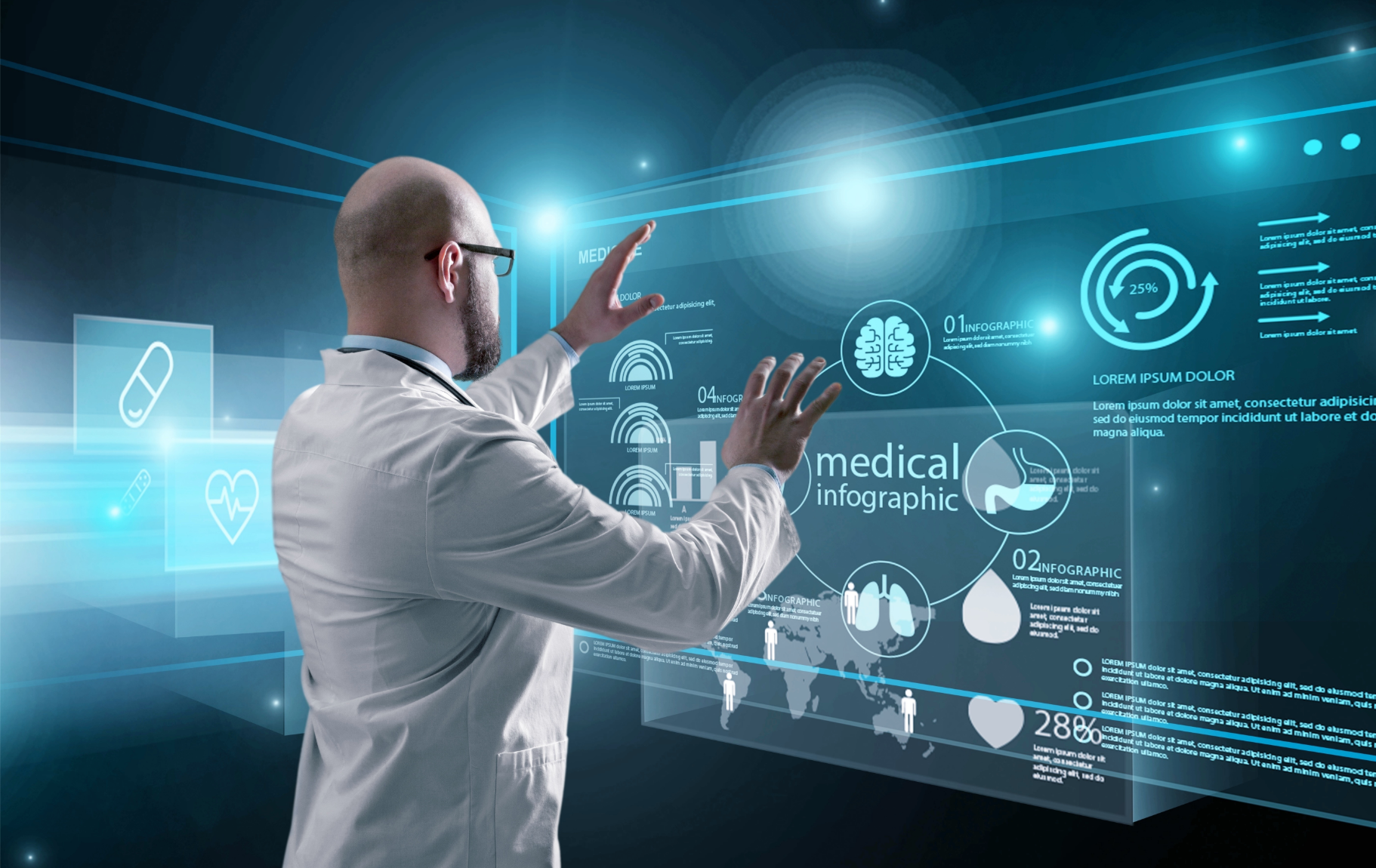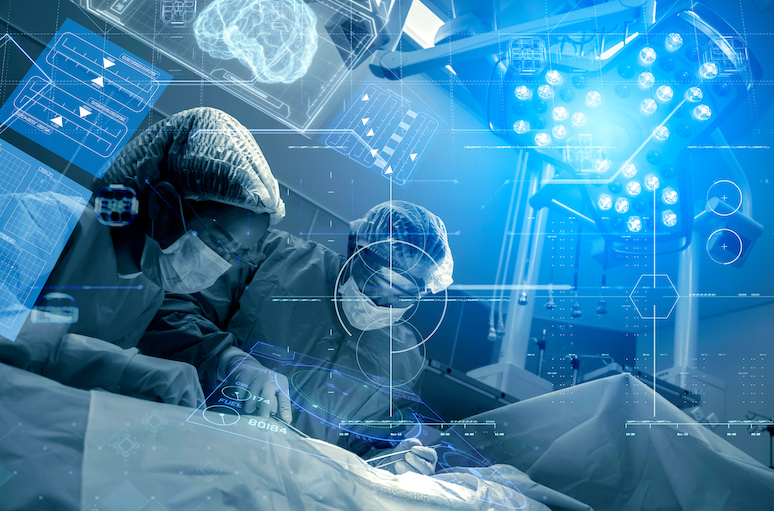Ai: How Ai Affecting The Future Of Medical Science

Artificial Intelligence: How It’s Affecting The Future Of Medical Science: The medical sciences make substantial use of computer systems with artificial intelligence. Common uses include remote patient treatment, prescription transcription, increasing doctor-patient communication, medication discovery and development from beginning to end, and patient diagnosis. Enoughifo.com

Modern computer algorithms have lately attained accuracy levels that are comparable to those of human specialists in the field of medical sciences, despite the fact that computer systems frequently do jobs more quickly than humans do. According to others, it won’t be long until humans are entirely replaced in several positions within the medical sciences. The goal of this essay is to examine how artificial intelligence is altering the field of medical science and to distinguish marketing hype from fact. How to use chat get for blogging to Make $70,000 Per Month?
Read Also: 150 Heartwarming Good Morning Messages For Friends
Introduction
Numerous industries, including banking and financial markets, education, supply chains, manufacturing, retail and e-commerce, and healthcare have benefited from the development and advancement of artificial intelligence (AI) in diverse ways and to varying degrees.
AI has played a significant role in several recent corporate advances within the technology sector. Web search (e.g., Google), content and product suggestions (e.g., Netflix), targeted advertising (e.g., Facebook), and autonomous cars (e.g., Tesla) are a few of these.
Every day, artificially intelligent systems benefit people. Starting with the spam-free emails we receive in our inboxes, moving on to smartwatches that use inputs from accelerometer sensors to differentiate between routine activities and aerobic activity, and finally purchasing goods on online shopping sites like Amazon that recommend products based on our past purchase histories.
These instances demonstrate the application of AI across several industries, including technology and retail. The way we view and process information has changed as a result of how AI has impacted our daily lives.
In relation to the medical sciences, this article seeks to present many facets of AI. The article will highlight businesses that now employ artificially intelligent systems in the healthcare sector, with an emphasis on historical and contemporary applications in the medical sciences.
In addition, this essay will stress the crucial value of multidisciplinary cooperation in the development of morally upright artificial intelligence systems as it comes to a close. How to pay off debt with a tight budget (Strategies 2023)
How Ai Affecting The Future Of Medical Science(FAQs & Answers)
1, Why was AI introduced in healthcare?
Ans: Artificial intelligence (AI) in healthcare enables medical personnel to take more educated decisions based on more precise information, which saves time, lowers costs, and generally improves the administration of medical data.
2, Why is AI important in the medical field?
Ans: AI can follow certain patient data more effectively than conventional care, giving clinicians more time to concentrate on therapies. The secret to realising the potential of AI and precision medicine is the capacity of computers to swiftly analyse enormous amounts of data.
3, How is AI transforming the medical world?
Ans: It can boost output and care delivery efficiency, enabling healthcare systems to serve more patients with more effective treatment. AI can assist healthcare professionals have a better experience, allowing them to spend more time providing direct patient care and lowering burnout.
Read Also: Healthy Aging Tips For Men Over 40 (14 Tips To Stay Healthy)
History Of AI In The Medical Field
The history of artificial intelligence (AI) in the medical field is a fascinating journey that spans several decades, involving breakthroughs, challenges, and advancements. Here is a brief overview of the history of AI in the medical field:
1960s-1970s: Early Beginnings AI research in medicine dates back to the 1960s and 1970s when researchers started exploring the use of AI techniques, such as rule-based expert systems, to help diagnose diseases and interpret medical images. One notable example was MYCIN, a computer program developed in the 1970s at Stanford University, which used expert knowledge to assist in the diagnosis and treatment of bacterial infections.
1980s-1990s: Knowledge-Based Systems During the 1980s and 1990s, knowledge-based systems and decision support tools gained traction in the medical field. These systems used rule-based and expert systems to analyze patient data and provide recommendations to clinicians. For example, the Clinical Expert System (CLEX) developed at the University of Pittsburgh in the 1980s was used to diagnose and manage a wide range of diseases.
2000s: Data-Driven Approaches With the advent of electronic health records (EHRs) and the proliferation of digital data, AI in medicine shifted towards data-driven approaches. Machine learning algorithms, such as support vector machines and neural networks, were applied to large datasets to develop predictive models for various medical conditions, such as cancer, diabetes, and heart disease. These models were used for risk assessment, early detection, and treatment planning.
2010s: Deep Learning and Precision Medicine The 2010s witnessed significant advancements in AI techniques, particularly deep learning, which has shown remarkable success in image and speech recognition tasks. In the medical field, deep learning algorithms have been applied to medical imaging, such as radiology and pathology, to aid in the detection and diagnosis of diseases with high accuracy. Additionally, AI has been used in precision medicine, where genetic and genomic data are analyzed to personalize treatments for patients based on their unique genetic makeup. How to Keep a Conversation Going (Top Tips 2023)
History Of AI In The Medical Field (Present Day)
Present Day: AI-Driven Healthcare Today, AI is being used in various areas of healthcare, including drug discovery, virtual health assistants, personalized treatment plans, remote monitoring, and predictive analytics. AI is also being used to analyze large amounts of data from diverse sources, including wearables, social media, and health records, to identify patterns, trends, and insights that can improve patient care and outcomes.
Future Prospects The future of AI in the medical field holds immense potential. Advancements in AI, machine learning, and big data analytics are expected to continue transforming healthcare, leading to better diagnostics, personalized treatments, and improved patient care. AI has the potential to revolutionize healthcare by automating routine tasks, augmenting clinical decision-making, and improving patient outcomes.
However, challenges such as data privacy, regulatory compliance, ethical considerations, and the need for robust validation of AI algorithms remain. As technology continues to evolve, it will be important to strike a balance between innovation and responsible use of AI in medicine to ensure its safe and effective integration into clinical practice.
Limitations and Challenges in the Application of Artificially Intelligent Systems in Medical Science
1. Limited Data Quality and Quantity
AI systems require large amounts of high-quality data for training and validation. However, medical data can be complex, unstructured, and fragmented, making it challenging to obtain sufficient data for training AI models. Additionally, data privacy and security concerns can limit data sharing, which can further hinder the development and performance of AI systems.
2. Bias and Fairness
Bias in AI algorithms can result in discriminatory outcomes, leading to health disparities and inequities. If the training data used to develop AI models is biased or incomplete, it can lead to biased predictions and decisions, particularly in sensitive areas such as disease diagnosis, treatment recommendations, and patient outcomes.
Ensuring fairness and mitigating bias in AI systems is a critical challenge that needs to be addressed to ensure the ethical and equitable use of AI in healthcare.
3. Lack of Explainability and Interpretability
Many AI models operate as “black boxes,” making it difficult to understand how they arrive at their predictions or recommendations. This lack of explainability and interpretability can reduce trust in AI systems, particularly in healthcare where explainability and transparency are crucial for clinical decision-making. Healthcare professionals and patients need to understand and trust AI systems for their widespread adoption.
4. Legal and Ethical Considerations
The use of AI in healthcare raises legal and ethical concerns, including issues related to data privacy, security, consent, accountability, and liability. Compliance with regulatory requirements, such as HIPAA (Health Insurance Portability and Accountability Act) in the United States, and ethical considerations, such as informed consent and responsible data use, are critical challenges in the application of AI in medical science.
5. Human-Machine Collaboration
AI systems are designed to augment human capabilities, not replace them. Achieving effective human-machine collaboration in healthcare can be challenging, as it requires integrating AI into existing clinical workflows, addressing concerns about job displacement and professional autonomy, and ensuring that healthcare professionals are trained and comfortable with using AI tools in their practice.
6. Cost and Implementation Challenges
Adopting AI in healthcare can come with significant costs, including the development and maintenance of AI systems, infrastructure requirements, and staff training. Implementing AI in diverse healthcare settings, such as resource-limited environments, can also pose challenges. Ensuring that AI technologies are accessible, affordable, and scalable across different healthcare settings is an important consideration.
7. Robustness and Reliability
AI models can be vulnerable to adversarial attacks, noise, and other forms of data variability that can affect their performance and reliability. Ensuring the robustness and reliability of AI systems in real-world clinical settings, where the data can be noisy and dynamic, is a significant challenge.
8. Regulatory and Societal Acceptance
The regulatory landscape for AI in healthcare is evolving, and there is a need for clear guidelines, standards, and frameworks to govern the development and use of AI in medical science. Societal acceptance of AI in healthcare, including patient acceptance, clinician acceptance, and ethical considerations, is crucial for the successful integration of AI into clinical practice. How to Become a Lifeguard (The Ultimate Guide 2023)
How Artificial Intelligence Is Affecting The Future Of Medical Science
Artificial intelligence (AI) is revolutionizing the field of medical science in numerous ways, offering the immense potential to transform how healthcare is delivered, diagnosed, and managed. Here are some ways AI is affecting the future of medical science:
1. Enhanced Diagnostics
AI has the capability to analyze vast amounts of medical data quickly and accurately, assisting in the diagnosis of diseases. AI algorithms can analyze medical images, such as X-rays, CT scans, and MRI scans, to detect abnormalities and assist radiologists in identifying diseases like cancer, heart disease, and neurological conditions at an early stage.
2. Personalized Treatment
AI can analyze a patient’s medical records, genetic information, lifestyle data, and other relevant information to develop personalized treatment plans. This can help doctors make informed decisions about treatment options, medication dosage, and therapy plans tailored to individual patients, leading to more effective and efficient healthcare outcomes.
3. Virtual Health Assistants
AI-powered virtual health assistants and chatbots can provide 24/7 support to patients, answering their queries, providing health advice, and monitoring their health conditions. Virtual health assistants can also help schedule appointments, manage medications, and provide reminders, improving patient engagement and adherence to treatment plans.
4. Drug Discovery and Development
AI is accelerating the drug discovery process by analyzing large datasets, predicting drug efficacy, and identifying potential side effects. This can significantly reduce the time and cost associated with drug discovery and development, leading to the development of new treatments for various diseases.
5. Remote Monitoring and Telemedicine
AI can enable remote monitoring of patients, allowing healthcare providers to monitor patients’ vital signs, symptoms, and disease progression remotely. This can be particularly beneficial for patients with chronic conditions, allowing them to receive care in the comfort of their own homes and reducing the need for frequent hospital visits. Telemedicine, powered by AI, can also enable virtual consultations, making healthcare more accessible and convenient.
6. Predictive Analytics and Early Warning Systems
AI can analyze large datasets to identify patterns and trends that can help predict disease outbreaks, identify at-risk populations, and develop early warning systems. This can help healthcare providers and policymakers proactively respond to health crises and implement preventive measures to mitigate the impact of diseases.
7. Surgical Assistance
AI can assist surgeons in complex surgeries by providing real-time guidance, analyzing patient data, and offering predictive analytics. AI-powered surgical robots can also perform precise and minimally invasive surgeries, reducing risks and improving patient outcomes.
8. Health Monitoring Wearables
AI is powering health monitoring wearables that can collect and analyze data on patients’ vital signs, sleep patterns, and activity levels. This information can be used to detect early warning signs of diseases, monitor chronic conditions, and provide personalized health recommendations.
Conclusion
In conclusion, AI is transforming the future of medical science by improving diagnostics, enabling personalized treatment plans, enhancing patient care through virtual health assistants and telemedicine, accelerating drug discovery, predicting disease outbreaks, assisting in surgeries, and powering health monitoring wearables.
With continued advancements in AI technology, the potential for AI to revolutionize healthcare and improve patient outcomes is immense. However, it’s important to ensure that AI is implemented ethically, with proper data privacy and security measures in place, and in collaboration with healthcare professionals to ensure the best possible patient care.
Recommended:
How to Build a Sustainable and Healthy Diet Plan (2023)
Medical Biller job description Responsibilities/Roles(2023)
How to be a Medical Doctor(Step-and Requirements)




